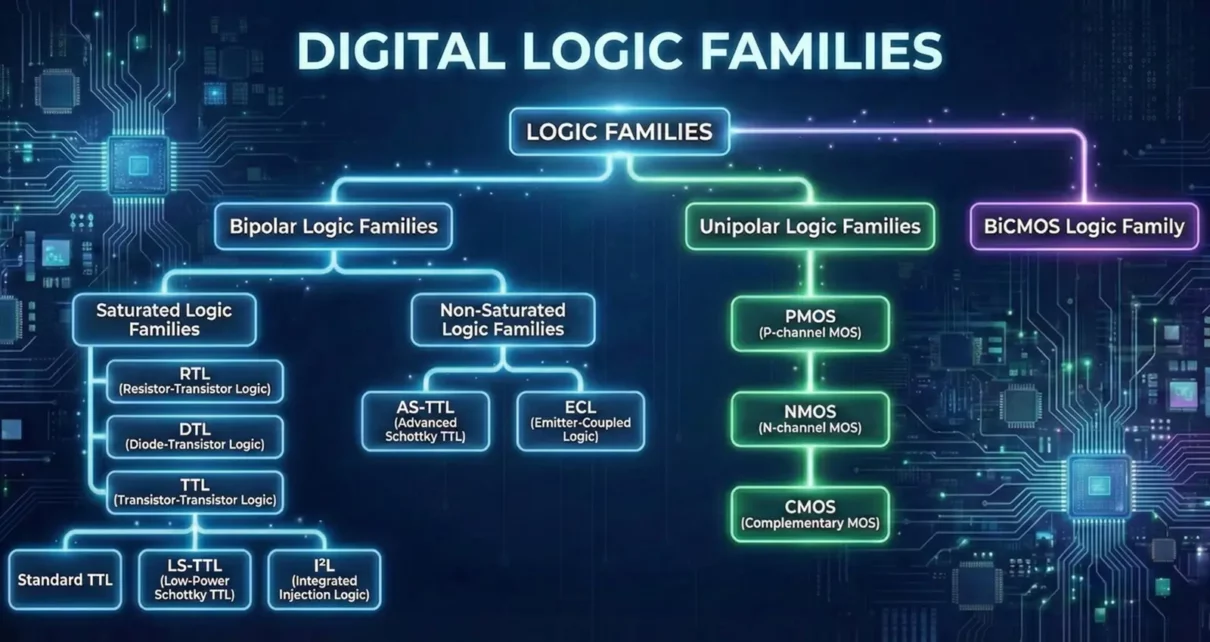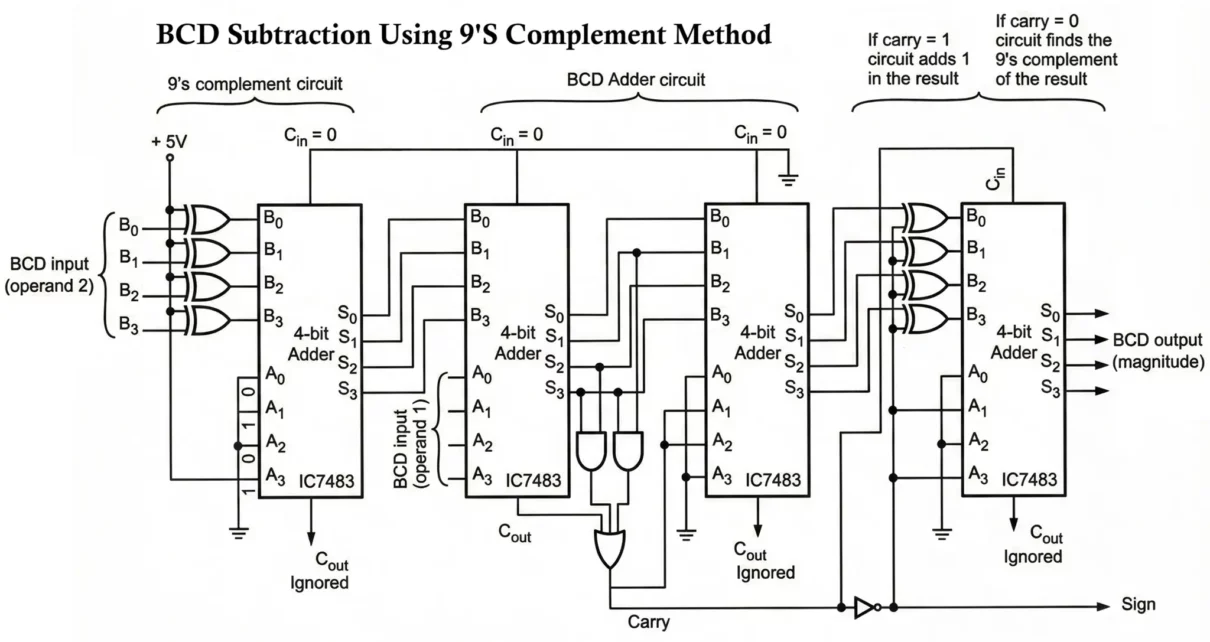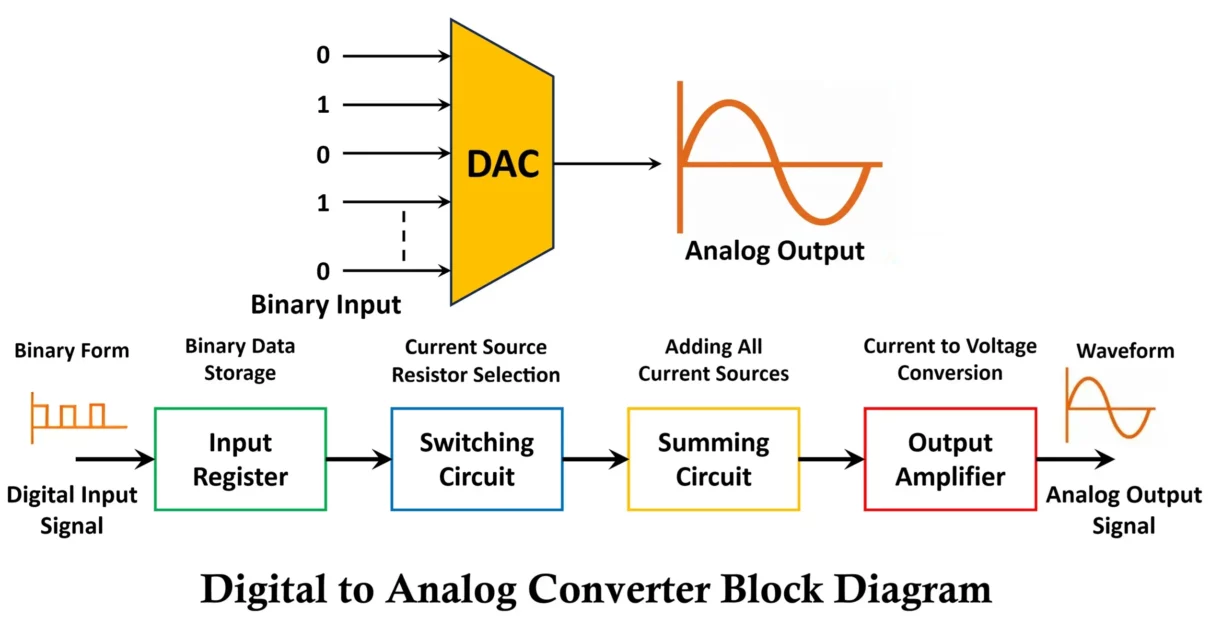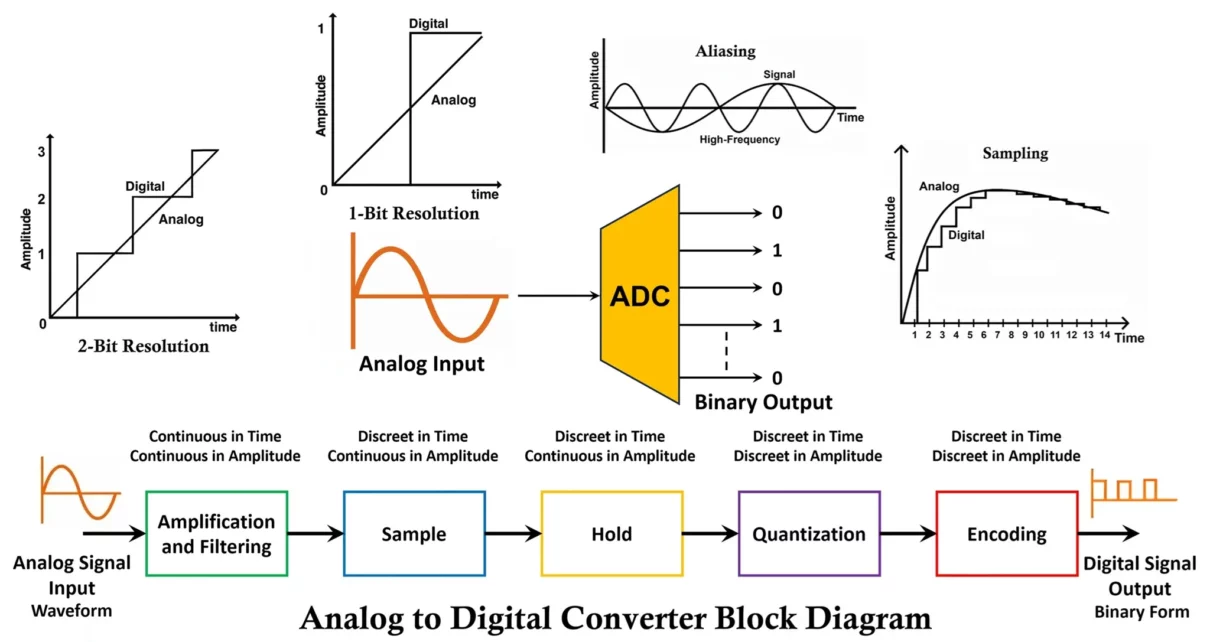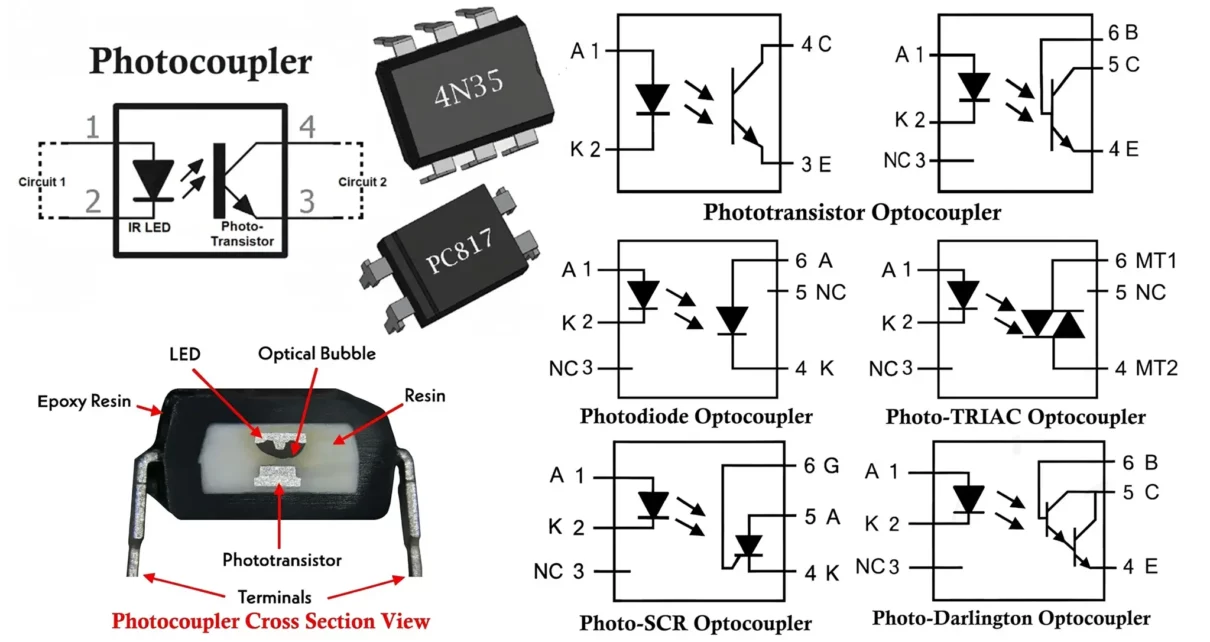Learn about digital logic families, their classifications, key characteristics, and how they differ in speed, power consumption, and practical applications in digital electronics. Digital electronic systems operate using binary logic levels, commonly represented as logic ‘0’ and logic ‘1’. The circuits that process these logic levels are built using logic gates, and these gates are […]
Digital Electronics
BCD Subtractor Circuit Diagram, Truth Table, Working and Applications
While a BCD adder performs decimal addition using binary hardware with correction logic, a BCD subtractor performs the subtraction of one BCD number from another and produces a valid BCD result. This requires additional logic because simple binary subtraction does not automatically produce valid BCD outputs. Digital systems frequently need to perform arithmetic operations such […]
BCD Adder Circuit Diagram, Truth Table, Working and Applications
Let’s explore the BCD Adder Circuit and learn how it adds decimal digits using Binary Coded Decimal (BCD), a digital coding system in which each decimal digit is represented using a 4-bit binary number. BCD arithmetic is widely used in digital systems where calculations must remain in decimal form, such as calculators, clocks, and display-based […]
Digital to Analog Converter (DAC) Block Diagram, Working, Types & Applications
Modern electronic systems rely heavily on both digital and analog signals. While microcontrollers, computers, and digital processors handle data in binary (digital form), most real-world signals such as sound, temperature, pressure, and voltage are analog. To bridge this gap, Digital to Analog Converters (DACs) are used. A DAC takes digital input (binary numbers) and converts […]
Analog to Digital Converter (ADC) Block Diagram, Working, Types & Applications
In today’s world, most electronic devices operate digitally, but the signals we experience in the real world—such as sound, light, temperature, and pressure—are analog in nature. To process these signals in microcontrollers, digital signal processors (DSPs), or computers, we need to convert analog signals into digital form. This is where an Analog-to-Digital Converter (ADC) comes […]
Photocoupler (Optocoupler / Optoisolator) – Construction, Working, Types & Applications
In modern electronics, signal isolation between different parts of a circuit is crucial for protection, noise reduction, and system stability. Optocouplers, also known as optoisolators, play a vital role in achieving this electrical isolation while allowing signal transmission. This article provides a thorough exploration of optocouplers (Optoisolator / Photocoupler), including their construction, working principles, advantages, […]
